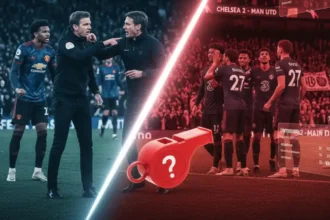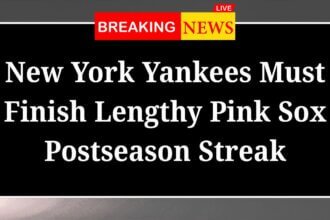Department Of Education Blocks Key Student Loan Payment Plan For Some Borrowers
In recent developments, the U.S. Department of Education has made headlines by blocking a significant student loan payment plan that was set to assist certain borrowers in managing their educational debts. This decision has prompted considerable discussion about its implications for students and graduates who are navigating the complexities of student loan repayment. In this article, we will delve into the details surrounding this decision, examine the reasons behind it, and explore its potential impact on borrowers.
Understanding the Student Loan Payment Plan
What was the Payment Plan?
The student loan payment plan in question aimed to provide relief to borrowers who have been struggling to keep up with their loan payments. This initiative was part of a broader effort to reform student loan policies, offering more flexible repayment options and potentially reducing the financial burden on graduates. The plan was particularly focused on borrowers with federal student loans, including those who had fallen behind on payments or faced financial hardships.
Under the proposed plan, borrowers would have been allowed to make payments based on their discretionary income, ensuring that their monthly obligations were more manageable. This approach would have helped borrowers avoid default and maintain their credit standing, which is critical for future financial endeavors, such as purchasing a home or applying for credit cards.
Who Would Have Benefited?
The payment plan was designed to benefit a diverse group of borrowers. This included recent graduates entering the workforce, individuals facing unexpected financial difficulties, and long-term borrowers seeking a more manageable repayment structure. By allowing borrowers to tailor their payment schedules based on their income and financial situation, the plan promised to make repayment more accessible for many.
For example, recent graduates often find themselves in entry-level positions with lower incomes, making it difficult to meet the standard repayment amounts. The new plan would have provided them with the flexibility to align their payments with their current financial realities, thus alleviating some of the stress associated with student debt.
Reasons for the Block
Policy Concerns
The Department of Education’s decision to block the payment plan appears to stem from various policy concerns. Officials have expressed worries about the potential long-term implications of the proposed plan on the federal student loan program. There are fears that such a program might lead to increased defaults or undermine existing repayment structures.
Critics argue that the plan could create a moral hazard, encouraging borrowers to take on more debt without the intention of repaying it. This concern is particularly relevant in light of the ongoing discussions about the sustainability of the federal student loan program, which already faces significant financial challenges.
Legal and Regulatory Challenges
Additionally, legal and regulatory challenges may have played a role in the decision. The Department of Education is tasked with ensuring that any student loan policies adhere to federal regulations and guidelines. If the proposed payment plan was viewed as conflicting with existing laws or regulations, this could have led to its rejection.
For instance, if the plan did not adequately address the interests of taxpayers or failed to promote responsible borrowing practices, it may have encountered significant legal hurdles. As such, the Department’s legal teams likely advised against implementing a plan that could lead to further complications down the road.
Implications for Borrowers
Immediate Effects
The immediate effects of the Department of Education’s decision are likely to be felt by thousands of borrowers. Many who had anticipated relief from the new payment plan may find themselves facing the same financial challenges as before. For those who are already struggling to make payments, this development could exacerbate their financial stress.
According to recent studies, nearly 43 million Americans hold student loan debt, with a significant portion of these borrowers in default or at risk of default. The inability to implement a new payment plan means that these borrowers will continue to face high monthly payments, potentially leading to further defaults and financial instability.
Long-Term Consequences
In the long term, the blocking of this payment plan raises questions about the future of student loan reform. Borrowers may feel uncertain about their options moving forward, and the lack of new initiatives could lead to increased advocacy for policy changes. The decision could also prompt discussions around the need for more comprehensive reforms to the student loan system.
As the financial burden of student loans continues to weigh heavily on many individuals, advocacy groups are likely to ramp up their efforts to push for a more sustainable and equitable student loan system. This could lead to increased pressure on lawmakers to create solutions that address the root causes of student debt.
Alternatives for Borrowers
Existing Repayment Plans
While the blocking of the new payment plan is disappointing for many, it is essential for borrowers to be aware of existing repayment options. The federal student loan program offers several repayment plans, including Income-Driven Repayment (IDR) plans, which allow borrowers to pay a percentage of their discretionary income. These plans can provide much-needed relief for those facing financial difficulties.
Additionally, borrowers can consider the Graduated Repayment Plan, which starts with lower payments that gradually increase over time. This option can be beneficial for individuals who anticipate an increase in their income in the future.
Loan Forgiveness Programs
Borrowers may also explore loan forgiveness programs, such as Public Service Loan Forgiveness (PSLF). These programs are designed to alleviate the student loan burden for individuals who work in qualifying public service jobs. While the requirements can be stringent, they offer a pathway to loan cancellation for eligible borrowers.
For example, a teacher working in a low-income school or a nurse employed by a nonprofit hospital may qualify for forgiveness after making a specified number of qualifying payments. Understanding the eligibility criteria and application processes for these programs can be crucial for borrowers looking to reduce their student loan debt.
Moving Forward: Advocacy and Reform
The blocking of the key student loan payment plan serves as a reminder of the ongoing challenges within the student loan system. As borrowers seek relief, advocacy for reform will likely continue to grow. Stakeholders, including borrowers, educators, and policymakers, are encouraged to engage in discussions about potential changes to the student loan landscape that could provide more sustainable solutions.
Importance of Advocacy
Advocacy groups play a crucial role in raising awareness about the needs of borrowers and pushing for meaningful reforms. By participating in advocacy efforts, individuals can contribute to a collective voice that seeks to influence policy change. Engaging with elected representatives, sharing personal stories, and supporting organizations that aim to improve the student loan system can create momentum for reform.
Moreover, social media platforms have become powerful tools for advocacy, allowing borrowers to share their experiences and connect with others facing similar challenges. This collective action can amplify the call for reform and hold policymakers accountable.
Conclusion
The decision by the Department of Education to block the key student loan payment plan has significant implications for borrowers navigating the complexities of student debt. While the immediate effects may be discouraging for many, it highlights the need for ongoing advocacy and reform within the student loan system. As borrowers explore existing repayment options and seek out alternatives, the conversation around student loan reform will undoubtedly continue.
Frequently Asked Questions (FAQs)
Q1: What should I do if I am struggling with my student loan payments?
If you are experiencing difficulty making your student loan payments, consider exploring Income-Driven Repayment (IDR) plans or loan forgiveness programs. Contact your loan servicer for guidance on available options.
Q2: Will there be other payment plans introduced in the future?
While the recent plan has been blocked, discussions around student loan reform are ongoing. Keep an eye on announcements from the Department of Education for any future initiatives aimed at assisting borrowers.
Q3: What are the eligibility requirements for loan forgiveness programs?
Eligibility requirements for loan forgiveness programs can vary. Generally, borrowers must work in qualifying public service jobs and make a certain number of qualifying payments. It’s essential to review the specific criteria for each program.
Q4: How can I get involved in advocacy for student loan reform?
You can get involved by joining advocacy groups, participating in campaigns, sharing your story with policymakers, and staying informed about developments in student loan policies. Your voice can contribute to meaningful change.
Q5: Are there any resources available for borrowers seeking assistance?
Yes, various resources are available, including the Federal Student Aid website, which provides information on repayment options, forgiveness programs, and other helpful tips for borrowers. Local nonprofit organizations also offer counseling services to help borrowers navigate their student loan debt.
By understanding these dynamics and staying informed, borrowers can better navigate the evolving landscape of student loan repayment and advocate for necessary reforms.







